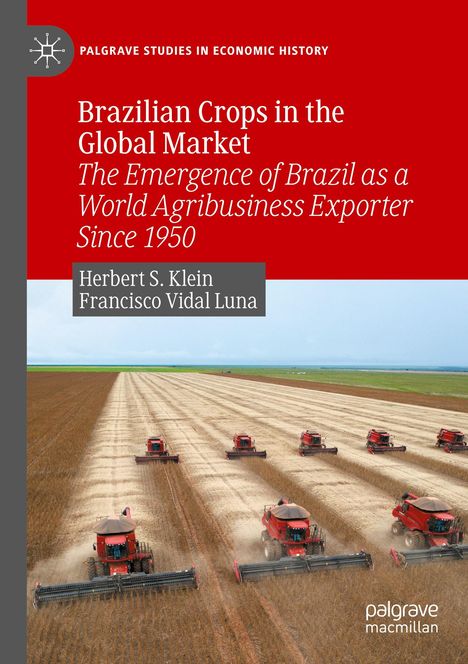Herbert S. Klein: Brazilian Crops in the Global Market, Kartoniert / Broschiert
Brazilian Crops in the Global Market
- The Emergence of Brazil as a World Agribusiness Exporter Since 1950
(soweit verfügbar beim Lieferanten)
- Verlag:
- Springer Nature Switzerland, 10/2024
- Einband:
- Kartoniert / Broschiert, Paperback
- Sprache:
- Englisch
- ISBN-13:
- 9783031385919
- Artikelnummer:
- 12042945
- Umfang:
- 496 Seiten
- Gewicht:
- 635 g
- Maße:
- 210 x 148 mm
- Stärke:
- 27 mm
- Erscheinungstermin:
- 26.10.2024
- Hinweis
-
Achtung: Artikel ist nicht in deutscher Sprache!
Weitere Ausgaben von Brazilian Crops in the Global Market |
Preis |
|---|
Klappentext
This book comprehensively examines the development of Brazilian agriculture by focusing on the crops which evolved from national products to international commodities on a massive scale. It traces the transformation of Brazil from a country with low-yield levels in 1950 to its current position as a leading world producer.
The first section of the book examines the modernization of Brazilian agriculture through a government programme which transformed traditional agriculture through subsidized credit, guaranteed prices, stock purchases, land utilization laws, modern research, new technology and major support for exports. It also explores the changing structures of agricultural production and farm ownership over time, analysing national censuses from 1920 to 2017 to illustrate the increasing efficiency of Brazil¿s agricultural workers. The book then discusses the history and evolution of the major Brazilian crops in detail, starting with the newer export crops such as soybeans, maize and cotton, before focusing on the traditional sugar and coffee industries. The final section of the book examines two other major areas of agroindustry: forestry and the evolution of the pastoral industries, as well as the growth of a meat exporting sector. The authors also explore questions of sustainability in the context of today¿s climate challenges, and the role of Brazilian agriculture in the world market going forward. This wide-ranging study will be of interest to a range of academics, including those working in agricultural economics, economic history, the history of Latin America and the history of agriculture more broadly.


